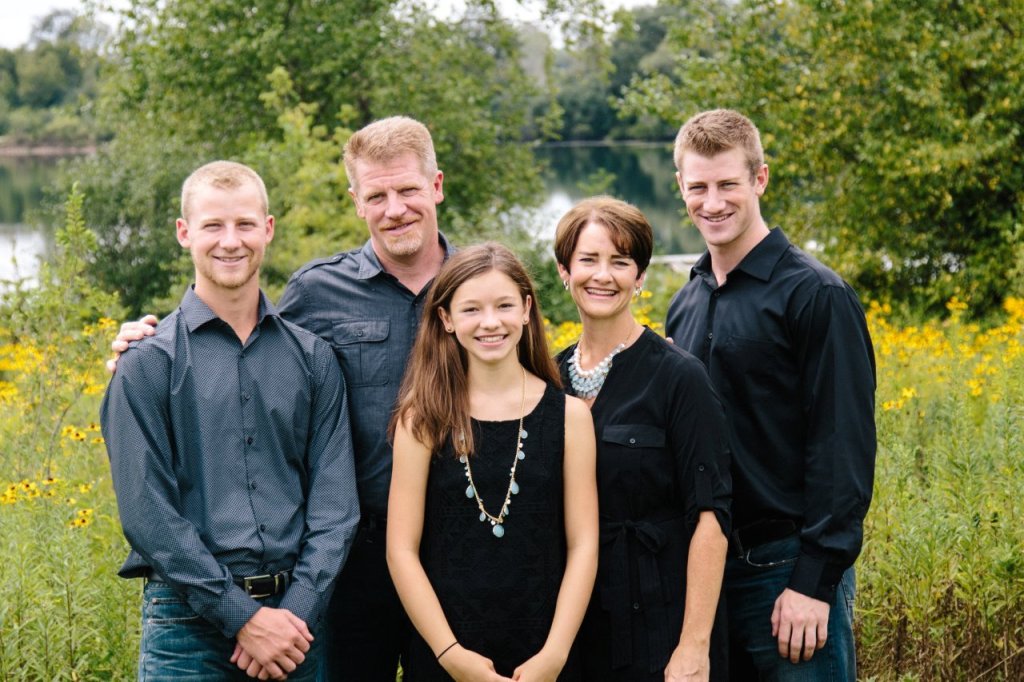
-God saw all that He had made, and it was very good. Gen 1:31

-by Julie Roys, 7/30/18
(Julie Roys is an Evangelical Christian reporter. She graduated from Wheaton College and also attended the Medill School of Journalism at Northwestern University in Evanston, Illinois. Julie has published many articles at Christianity Today, World Magazine. Religion News Service, The Federalist, and The Christian Post. As a respected, conservative Christian voice, Julie also has been interviewed numerous times on National Public Radio, One America News, and Total Living Network. Julie hosted a live, call-in talk radio show on the Moody Radio Network that was called Up For Debate for six years. For calling out the issues at Moody she apparently lost her job. Julie and her husband live in the Chicago area and they have three children.)
“I used to think like most evangelicals when it came to family planning. I strongly opposed abortion, but embraced contraception and thought Catholic objections to birth control were on par with praying to Mary.
Abortion, I reasoned, takes an innocent life and is clearly wrong. But contraception merely prevents conception. What could be wrong with that?
Sadly, I had never considered arguments on the other side. When I did, I discovered they aren’t flimsy or far-fetched. They’re solid and Scriptural. And they aren’t just Catholic either.
Every Protestant Reformer opposed contraception. In fact, before 1930, every church – Protestant and Catholic – did as well.
Yet today, most evangelicals embrace contraception. In fact, we’re so enthusiastic about it, we’re promoting it worldwide.
The Christian aid group World Vision now works with the pro-abortion Bill & Melinda Gates Foundation to help women in poor countries “time and space their pregnancies.” So does Christian singer Amy Grant. There’s even a faith-based organization whose main purpose is to promote family planning. Not surprisingly, Bill & Melinda Gates are contributing to this group too.
Today, Western nations spend billions to control population in the developing world. Supporters say the impetus for this is concern for women and children. But critics say that’s not so. The only reason the West wants to reduce population elsewhere is because it wants more resources for itself.
So now the issue of birth control isn’t just personal; it’s global. And the stakes don’t just concern the size of one’s family, but the fate of people worldwide and the witness of the church.
Over the last 60 years, evangelicals have promoted a view that earlier Christians would have thought immoral. We didn’t do this because we studied Scripture and found prior interpretations lacking. Instead, we were swept along by culture.
Most evangelicals are blissfully unaware of this sad history. Our pastors told us birth control was fine and we gladly accepted what we were told. But the stakes are too high for us continue in ignorance. We need to study our past and Scripture, and seriously rethink if using birth control honors God.
In this article, I’ll help us do that by explaining what led evangelicals to embrace birth control. In part two, I’ll describe the theology developed to defend this embrace. And in part three, I’ll examine biblical arguments for and against contraception.
Anglicans Break With Tradition
Though Reformer Martin Luther had no problem with natural family planning, he strongly opposed contraception, calling it “intrinsically evil” and “a grave sin.” Fellow Reformer John Calvin felt similarly. Referring to Onan’s sin, he wrote, “It is a horrible thing to pour out seed.” This “quenches the hope” of one’s family and “kills the son . . . before he is born.”
In saying these things, Luther and Calvin were not expressing anything new. They were simply stating a position the church had held for more than a thousand years. Early Church Father St. Clement of Alexandria wrote, “(T)he seed is not to be . . . wasted. To have coitus other than to procreate children is to do injury to nature.” Likewise, John Chrysostom lamented that some couples viewed children “as grievous and unwelcome” due to their greed.
Historically, opposing birth control has not been a Catholic thing. It’s been a Christian thing. As late as 1908, Anglican church leaders officially resolved that “the use of all artificial means” of birth control should be discouraged. They added that contraception corrupted character and was “hostile to national welfare.”
Yet in 1930, Anglicans reversed course and became the first church to condone birth control. As author and scholar Allan C. Carlson said in a 2015 interview, the impetus for this change was not spiritual, but pragmatic. Planned Parenthood founder Margaret Sanger had recruited Anglican pastors and convinced many to embrace eugenics, or “controlled breeding.” The American Eugenics Society even sponsored a “Eugenics Sermon Contest” with cash prizes for the best sermons.
Evangelicals Succumb to Fear
Evangelicals, however, opposed birth control for several more decades. But in 1959, Billy Graham made a stunning statement. He told reporters that he found “nothing in the Bible which would forbid birth control.”
Like the Anglicans, Graham didn’t appear to be motivated by Scripture. Instead, having recently visited Africa, he cited concerns of overpopulation. “I do believe that some form of birth control is necessary in Asia, Japan, Africa, and other nations where population explosions are threatened,” he said.
Many in Graham’s generation shared his concern. In 1952, the Population Council had warned that overpopulation was going to deplete the world’s resources. And in 1958, the Draper Committee reported that the “population problem” was the greatest obstacle to world progress.
A month before Graham’s statement, Christianity Today ran an article on the Draper Report. It suggested that the time had come for a “re-examination” of sex apart from procreation. Apparently, Graham agreed.
Over the next decade, fears of overpopulation continued to grow and exploded when Paul Ehrlich published The Population Bomb. This best-selling book predicted that overpopulation would lead to mass starvation in the 1970s and 80s. Though Ehrlich’s predictions never came true, the fears he raised remained and impacted Christians and non-Christians alike.
Yet evangelicals couldn’t fully embrace contraception without a strong biblical rationale. That came seven years after Graham’s statement. And it led to major changes in Christian thought and action.
Many evangelicals began accepting and using contraception. And as I explain in my next article, some began to condone abortion, as well.”
Love,
Matthew
